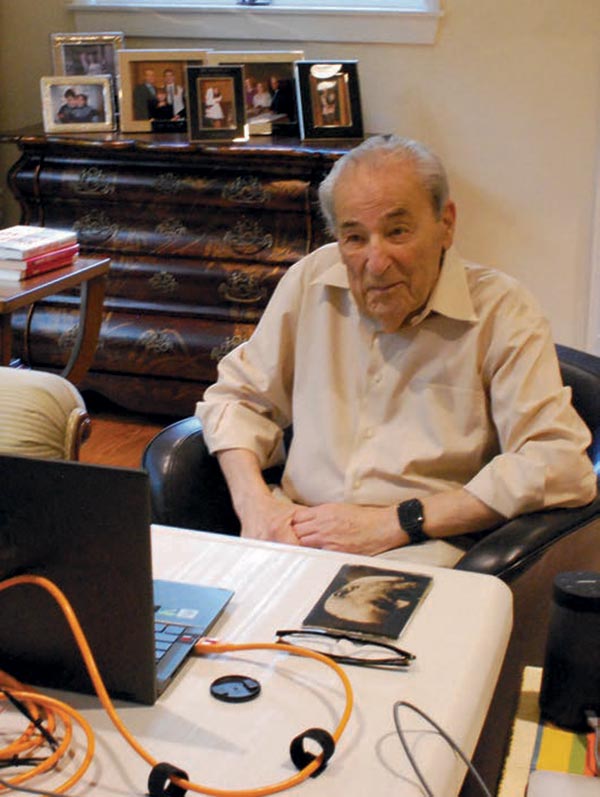
Joe Adamson
Published:
Like many Holocaust survivors, Joe Adamson had been reluctant to speak of his experiences, which included a series of relocations brought about by the rise of Nazism: from his birthplace in Koenigsberg, Germany to Frankfurt Oder to live with his grandparents—whose house was ransacked on Kristallnacht—and then to England on the Kindertransport when he was 14, arriving at Weston-at-the-Sea with a small suitcase and no knowledge of English. Later, he worked as a translator for the U.S. Army on a team that interrogated Nazis and was at the front with troops who liberated Mauthausen.
“Other than a few little vignettes, Joe had not talked about his experiences. We would get pieces,” said Joe’s daughter-in-law Madelyn. So when USC Shoah Foundation reached out to see if Joe, 96, would be willing to share his testimony for the Visual History Archive as part of the Last Chance Testimony Initiative, Madelyn and Joe’s son Allen seized an opportunity to learn more about their Joe’s life.
When the COVID-19 pandemic derailed the opportunity for an in-person interview, the Institute’s team responded by creating a remote testimony setup they mailed to Joe in Connecticut. There, in the comfort of his own home, Joe shared his story with an Institute interviewer in Los Angeles. “He initially thought he only had about 15 minutes of stories to share, but ended up talking for four hours,” said Allen.
“This really unlocked a door, something that was repressed for more than 80 years. It all came flooding out,” Madelyn added.
This remote interview setup has proven vital to capturing testimony of more Last Chance survivors, whose stories the Institute is recording while they are still able to give them. The remote camera system will allow for survivors’ safety when travel may be too taxing or dangerous. “Being able to capture these [testimonies] remotely is so important,” Allen said. “Time is of the essence.”
The Adamson’s were so impressed with the remote testimony experience they donated to the Last Chance Initiative after Joe’s interview so more survivors would be able to share their histories. Without this experience, Madelyn said, “This legacy would have been lost. This is a gift to Joe’s sons and grandchildren, because now we know his full story.”